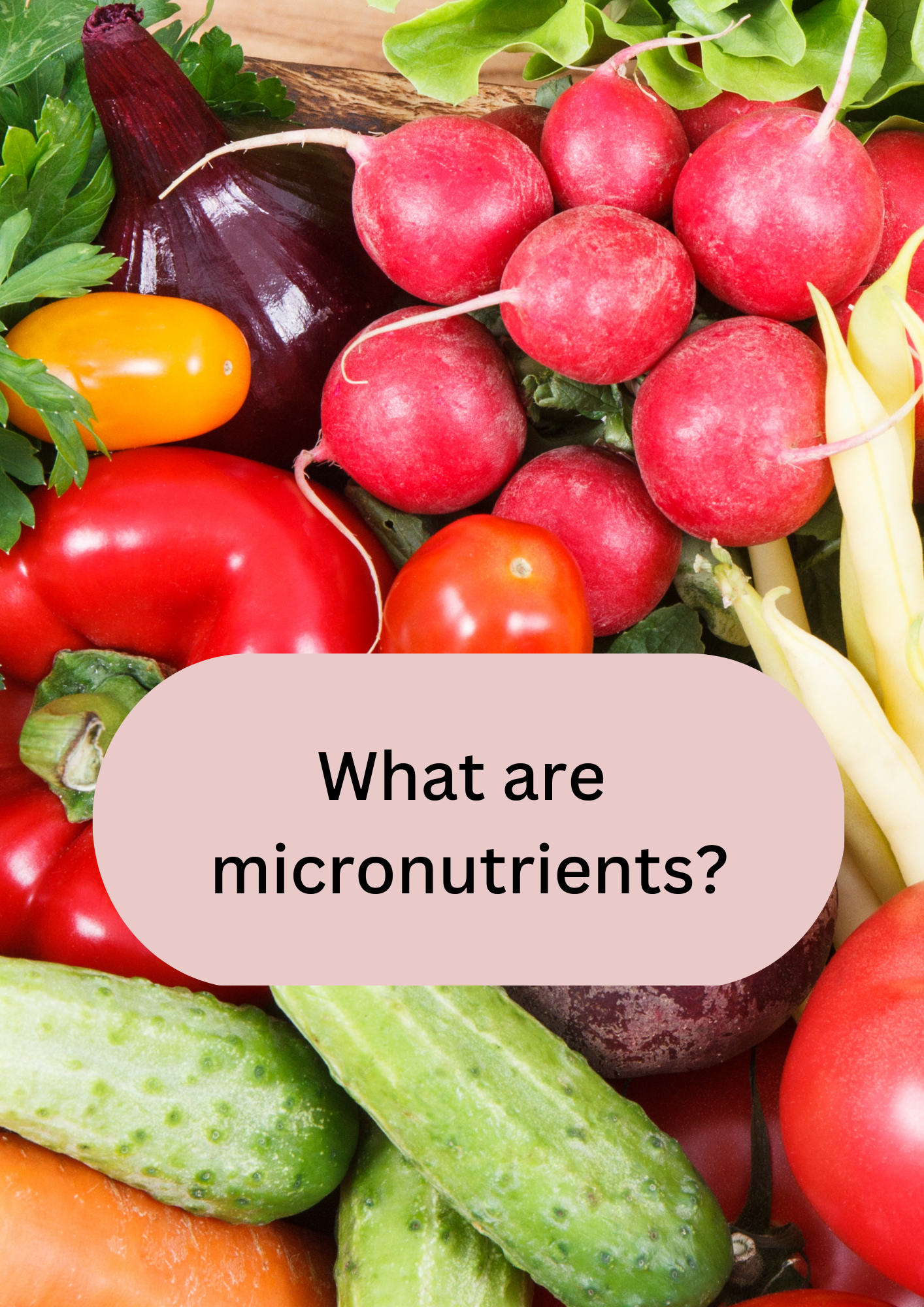Most people are familiar with the macronutrients (carbohydrates, fat and protein) and these are the main nutrients that we get from food. However, food and some drinks, provide us with much more than just fats, carbohydrates and protein, or a combination of those, – they also provide us with micronutrients. Now, I should probably mention that when I say ‘food’, I mean wholefoods and not processed foods. The latter generally don’t contain many micronutrients at all! And right there is a big reason for why we should mainly, or preferably only, eat wholefoods. So what do I mean by wholefoods?
Wholefoods are basically foods that have not been processed or that have been minimally processed. Vegetables, fruits, legumes, nuts & seeds, whole grains and many animal foods are all wholefoods. Now, some of these will have been processed to some degree, e.g. a grain might have been ground into a flour, a vegetable might have been frozen or canned or meat might have been into mince. This is generally ok and is definitely not what I mean by ‘processed foods’. The kind of processed foods that I recommend avoiding are those have had lots of sugar, fat, salt, additives, colours and other chemicals added to them, that have been deep fried or entirely manufactured in a lab rather than made from fresh food.
Anyway, I digress…back to micronutrients. Micronutrients are vitamins and minerals that the body needs in small amounts, but that are vital to its proper functioning. We need them for a healthy immune system, proper nerve functioning, oxygen transport, muscle contraction, bone formation and many other critical bodily functions. Deficiency in any of them can lead to disease and even life-threatening conditions. Micronutrient deficiency can also lead to reduced energy, less mental clarity, reduced growth and development in children, and blindness to name just a few. Deficiency in some micronutrients, for example iron, is very common and many children and pregnant women have inadequate iron levels. Iron deficiency can lead to anaemia, and anaemia during pregnancy can be fatal for the mother and lead to low birth weight for the baby. This is just one example of why micronutrients are so important for us!
The body can’t make these nutrients, so it has to rely on food to get its daily supply of them. Where do we find them? In wholefoods!
How much we need of one depends, as each one has a different recommended intake amount. In addition, it also depends on the stage of life you are in, your stress levels, how active you are and other factors, so it’s quite individualised. As a whole though we should, as a minimum, stick to the recommended guidelines of 5-6 serves of vegetables, 2 serves of fruit per day, 4-6 serves of a variety of grains, 3 serves of proteins (animal or plant based) and about 2 serves of dairy per day (these are adult recommendations). However, these are very general guidelines and don’t take your individual circumstances into account. The main takeaway from them should be to eat a varied diet that includes plenty of fresh fruits and vegetables! In the coming weeks I will post some more info on individual vitamins and minerals, in particular on those that are vital for pregnancy.
If you would like to discuss this in more detail and find out what you might need more of, go ahead and book in a discovery call to see if we can work together.
If you are pregnant or plan on becoming pregnant soon, it is even more important to consume adequate levels of micronutrients, in particular some like iron, iodine and folate. Book in for a session to find out which foods are critically important for you and where you might need to supplement.
References
Centers for Disease Control & Prevention (2022). Micronutrient facts. https://www.cdc.gov/nutrition/micronutrient-malnutrition/micronutrients/index.html
Croxford, S., Itsiopoulos, C., Forsyth, A. et al. (Eds). (2015). Food & Nutrition throughout life. Allen & Unwin.
Eat for Health (2013). Australian dietary guidelines summary. https://www.eatforhealth.gov.au/sites/default/files/2022-09/n55a_australian_dietary_guidelines_summary_131014_1.pdf
Whitney, E., Rolfes, S.R., Crowe, T. et al. (2017). Understanding Nutrition (3rd ed.). Cengage Learning.

